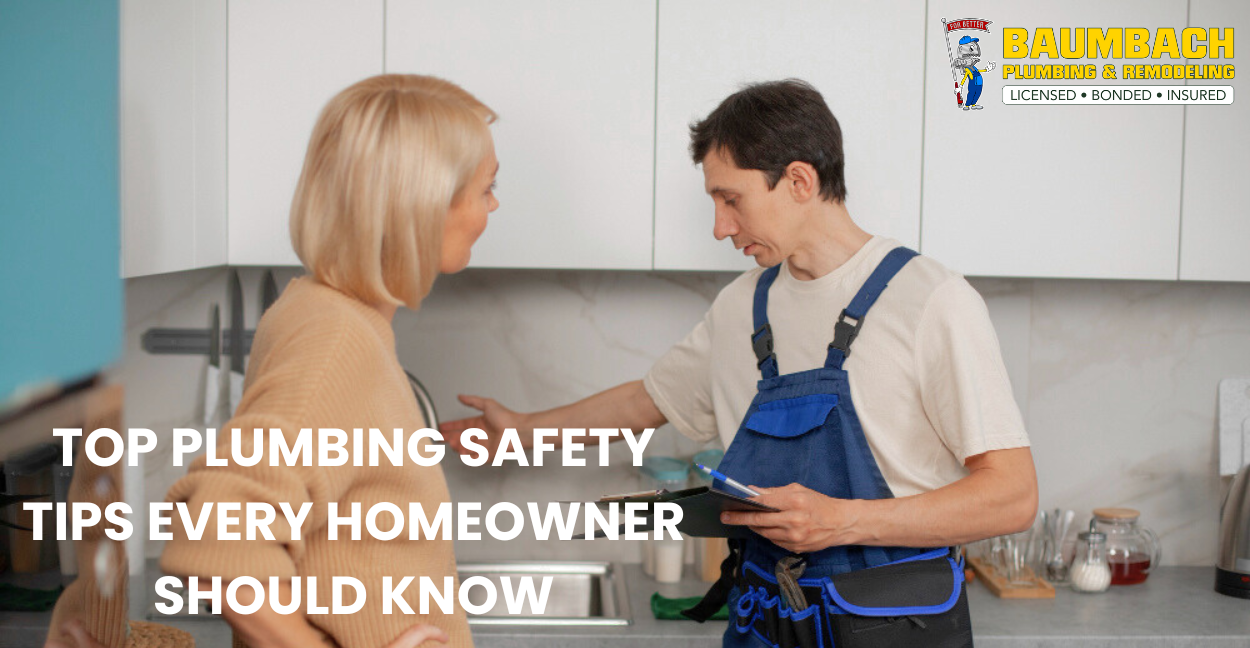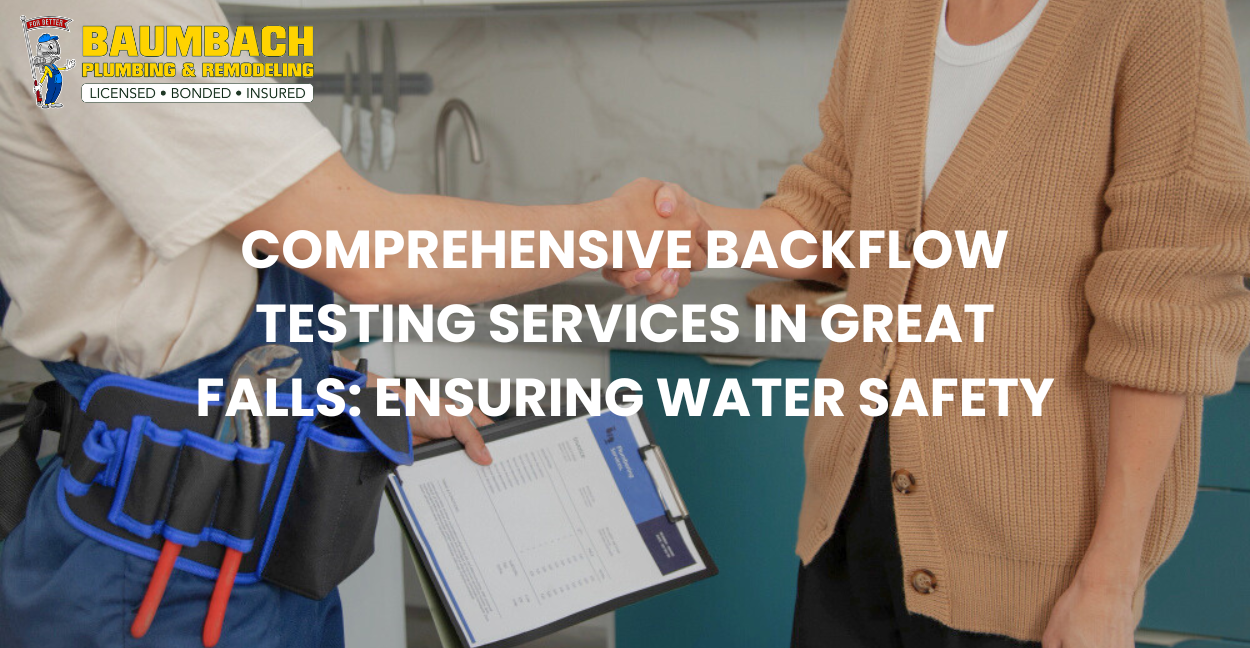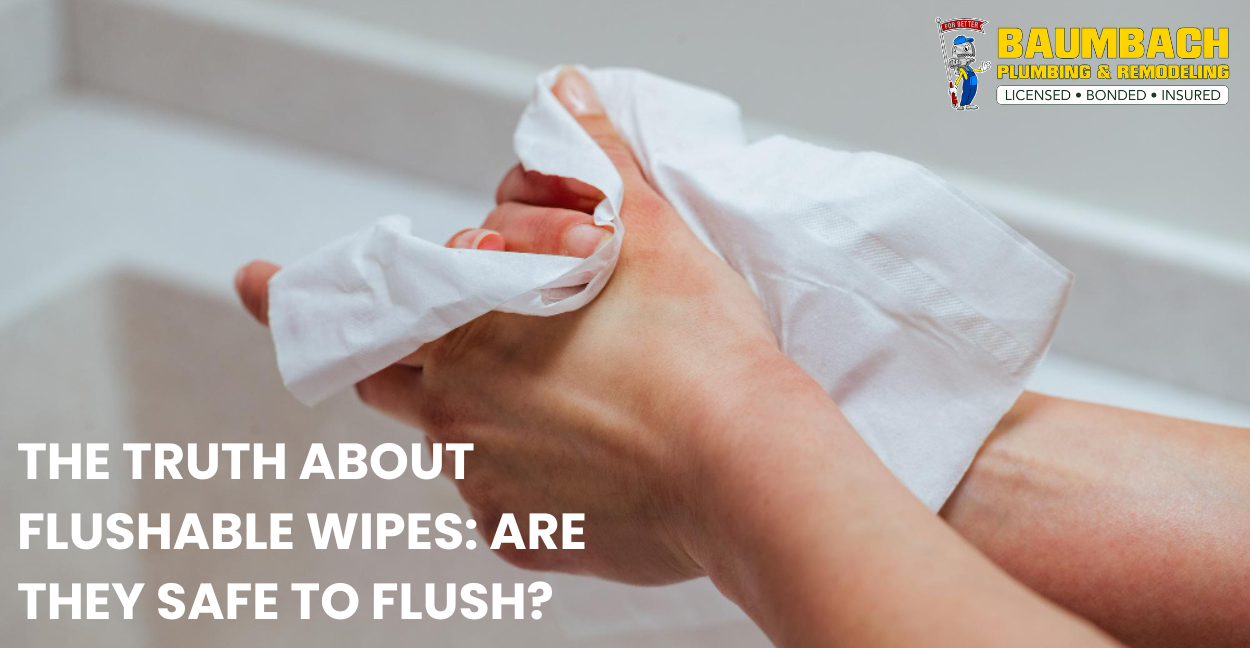Plumbing is an essential aspect of home maintenance, but it comes with its own set of challenges and risks. Ensuring safety while performing plumbing tasks can prevent injuries and costly damages. In this article, we’ll explore comprehensive plumbing safety tips, covering everything from basic precautions to advanced safety measures.
Introduction to Plumbing Safety
Plumbing involves working with water, tools, and sometimes electricity, making it inherently risky. Safety should always be a top priority to prevent accidents and ensure the longevity of your plumbing system. Let’s dive into the key safety tips every plumber should know.
1.) Turn Off the Water Supply
One of the most basic yet essential plumbing safety tips is to turn off the water supply before starting any repair or maintenance work. This step helps prevent unexpected water bursts that can cause flooding, water damage, and even injuries.
Why is this important?
- Prevents Water Damage: Turning off the water supply stops water from flowing through pipes, reducing the risk of water damage.
- Reduces Accident Risk: It minimizes the chance of slipping and falling due to water spills.
- Ensures Control: It gives you control over the plumbing system, making repairs more manageable and less chaotic.
2.) Wear Protective Gear
Safety gear is a must when handling plumbing tasks. Wearing the right protective equipment can safeguard you from potential hazards.
Essential Protective Gear:
- Gloves: Protect your hands from sharp objects, chemicals, and hot surfaces.
- Goggles: Shield your eyes from debris, chemical splashes, and other foreign particles.
- Long-Sleeved Clothing: Provides an extra layer of protection against cuts and abrasions.
3.) Use the Right Tools
Using the correct tools is critical for any plumbing job. Improper tools can lead to injuries and damage to plumbing fixtures.
Common Plumbing Tools:
- Pipe Wrench: For tightening and loosening pipes.
- Plunger: Essential for unclogging drains.
- Pipe Cutter: For cutting pipes accurately.
- Teflon Tape: To ensure watertight seals.
4.) Work in a Well-Lit Area
Proper lighting is essential to avoid accidents and ensure precision. Working in dimly lit areas can lead to mistakes and increase the risk of injury.
Tips for Proper Lighting:
- Use Portable Lights: If natural light is insufficient, use portable work lights to illuminate your workspace.
- Check Lighting Before Starting: Ensure the area is well-lit before beginning any plumbing task.
5.) Avoid Contact with Electrical Wiring
When working near electrical systems, exercise caution to avoid electrocution. Water and electricity are a dangerous combination.
Safety Measures:
- Turn Off Power: Switch off the electrical power in the area where you are working.
- Use Insulated Tools: Ensure tools are insulated to prevent electric shocks.
- Keep Water Away: Avoid working in wet areas with exposed electrical wiring.
6.) Handle Chemicals with Care
Chemicals such as drain cleaners can be hazardous. Always handle them with care to prevent injuries and health issues.
Chemical Safety Tips:
- Read Labels: Follow the manufacturer’s instructions and safety warnings.
- Use in Ventilated Areas: Ensure proper ventilation to avoid inhaling fumes.
- Store Properly: Keep chemicals in a safe, dry place, away from children and pets.
7.) Lift Heavy Objects Properly
Plumbing often involves lifting heavy objects like toilets and bathtubs. Using proper lifting techniques can prevent back injuries and muscle strains.
Lifting Tips:
- Bend Your Knees: Use your legs to lift, not your back.
- Get Help: If an object is too heavy, ask for assistance or use a dolly.
- Plan Your Route: Ensure a clear path to avoid tripping hazards.
8.) Secure Fixtures Correctly
Properly securing fixtures like sinks and toilets prevents leaks and ensures longevity. Loose fixtures can cause water damage and structural issues.
Securing Techniques:
- Use Proper Anchors: Ensure fixtures are anchored securely to walls or floors.
- Double-Check Connections: Verify that all connections are tight and leak-free.
- Test for Stability: Gently test the stability of fixtures after installation.
9.) Know Your Limits
While DIY plumbing can save money, it’s essential to recognize when a task is beyond your skill level. Attempting complex repairs without proper knowledge can lead to more significant issues.
When to Call a Professional:
- Major Leaks: If you encounter a major leak, it’s best to call a professional plumber.
- Gas Line Issues: Gas line repairs should always be handled by professionals.
- Complex Installations: For tasks like installing water heaters or major appliances, professional assistance is advisable.
10.) Conduct Regular Maintenance
Regular maintenance is key to preventing plumbing issues. Inspecting your plumbing system periodically can help identify problems before they escalate.
Maintenance Tips:
- Check for Leaks: Regularly inspect pipes, faucets, and fixtures for leaks.
- Clean Drains: Keep drains clear of debris to prevent clogs.
- Test Water Pressure: Ensure your water pressure is at an optimal level to prevent pipe damage.
Ensuring plumbing safety is crucial for a safe home environment. If you need professional assistance with your plumbing tasks, don’t hesitate to contact us for expert services. Our experienced plumbers are ready to help you with all your plumbing needs. Book your free consultation today and ensure your plumbing system is in top shape.
Safety Tips for Specific Plumbing Tasks
1. Safety Tips for Unclogging Drains
Unclogging drains is a frequent plumbing task that can range from simple to complex. It’s essential to follow safety guidelines to avoid injury and damage.
Precautions:
- Wear Protective Gear: Always wear gloves and safety goggles to protect your hands and eyes from debris and chemical splashes.
- Use the Right Tools: Opt for a plunger, drain snake, or auger instead of chemical drain cleaners, which can be harmful and cause damage to pipes.
- Avoid Excessive Force: Applying too much force can damage pipes and fixtures. Use a gentle, steady motion to dislodge clogs.
Why These Tips Matter:
- Prevents Injury: Protective gear shields you from harmful substances and debris.
- Reduces Pipe Damage: Using appropriate tools and techniques helps maintain the integrity of your plumbing system.
- Enhances Effectiveness: Proper methods ensure efficient unclogging without causing further issues.
2. Safety Tips for Fixing Leaky Faucets
Fixing a leaky faucet is a common DIY plumbing task that requires careful handling to avoid accidents and ensure a successful repair.
Precautions:
- Turn Off the Water Supply: Before disassembling the faucet, make sure to turn off the water supply to prevent water spills.
- Use the Correct Tools: Utilize a wrench, pliers, and screwdrivers suitable for the faucet type to avoid stripping or damaging parts.
- Follow Instructions: Refer to the manufacturer’s manual or online tutorials for specific guidance on disassembling and reassembling the faucet.
Why These Tips Matter:
- Prevents Water Damage: Turning off the water supply eliminates the risk of flooding and water damage.
- Ensures Proper Repair: Using the right tools and following instructions lead to a successful and lasting repair.
- Maintains Safety: Careful handling prevents injuries and accidental damage to fixtures.
3. Safety Tips for Installing Water Heaters
Installing a water heater involves working with water, gas, or electricity, making it a task that requires strict adherence to safety protocols.
Precautions:
- Turn Off Power and Gas Supply: Ensure the power and gas supply are turned off before starting the installation to prevent electric shocks and gas leaks.
- Wear Protective Gear: Use gloves, safety goggles, and long-sleeved clothing to protect yourself from sharp edges and hot surfaces.
- Follow Manufacturer’s Instructions: Adhere to the installation guidelines provided by the manufacturer to ensure a safe and efficient setup.
Why These Tips Matter:
- Prevents Accidents: Turning off power and gas supplies eliminates the risk of electrocution and gas leaks.
- Ensures Personal Safety: Protective gear shields you from injuries during installation.
- Guarantees Proper Installation: Following instructions ensures the water heater operates safely and efficiently.
4. Safety Tips for Handling Plumbing Chemicals
Plumbing tasks often involve using chemicals like drain cleaners and solvents. Proper handling of these substances is crucial to avoid health hazards.
Precautions:
- Read Labels Carefully: Always read and follow the manufacturer’s instructions and safety warnings on chemical labels.
- Use in Well-Ventilated Areas: Ensure proper ventilation to avoid inhaling harmful fumes.
- Store Safely: Keep chemicals in their original containers and store them in a cool, dry place away from children and pets.
Why These Tips Matter:
- Prevents Health Issues: Proper handling and ventilation reduce the risk of respiratory problems and chemical burns.
- Ensures Safety: Reading labels and following instructions minimize the chances of accidents and misuse.
- Maintains Control: Safe storage prevents accidental spills and exposure.
5. Safety Tips for Working in Confined Spaces
Plumbing tasks often require working in confined spaces like crawl spaces and under sinks, which can pose various risks.
Precautions:
- Use Adequate Lighting: Ensure the area is well-lit to avoid accidents and work efficiently.
- Ventilate the Space: Use fans or open windows to ensure proper airflow and reduce the risk of inhaling harmful fumes.
- Have a Buddy System: If possible, have someone nearby to assist in case of emergencies.
Why These Tips Matter:
- Prevents Accidents: Adequate lighting and ventilation reduce the risk of slips, falls, and respiratory issues.
- Ensures Quick Assistance: Having someone nearby provides immediate help in case of an emergency.
- Improves Efficiency: Proper lighting and airflow create a safer and more comfortable working environment.
About Baumbach Plumbing & Remodeling
Looking for reliable plumbing services? Baumbach Plumbing & Remodeling is here to help! With years of experience serving Alexandria(VA), Arlington(VA), Fairfax Station(VA), McLean(VA) and many more areas. We offer a wide range of plumbing solutions to meet your needs. From routine maintenance and repairs to new installations and emergency services, our team of skilled professionals is dedicated to providing top-notch service and ensuring customer satisfaction. Contact us today to schedule an appointment or learn more about our services. Let us take care of your plumbing needs so you can enjoy peace of mind knowing your home or business is in good hands.






